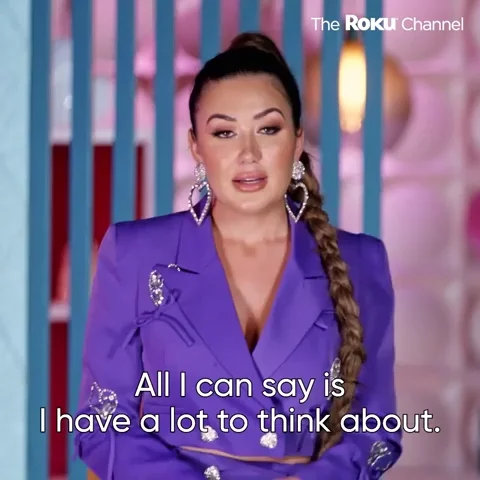Have you ever found yourself holding on to someone because they feel safe, kind, and familiar, even though your heart is somewhere else?

It’s confusing and painful to be in a platonic relationship when you have romantic feelings for another person outside that relationship. You might care deeply for your platonic friend, but not in the way they want or deserve.
Recognize what you're feeling and explore how to cope with the emotional tension that comes from being torn between comfort and desire.
What is a Platonic Relationship?
A platonic relationship is a deep, meaningful connection between two people that doesn't involve romantic or sexual attraction. These relationships are often formed through mutual respect, shared values, emotional support, and trust. Think of a best friend, a confidant, or someone you can count on, without the element of romantic love.
 Photo by A. C. on Unsplash
Photo by A. C. on UnsplashBut sometimes, you might find yourself emotionally invested in another person — someone you have romantic feelings for while still being closely connected to your platonic relationship. This can bring up feelings of guilt, confusion, and even pressure to stay in that platonic relationship because it’s familiar, safe, or supportive.
Understanding the nature of platonic relationships can help you set healthy boundaries, stay emotionally honest, and navigate your feelings in a way that respects both yourself and the people involved.

Ways to Cope With This Situation
Navigating a platonic relationship when you have romantic feelings for another person can be challenging and emotionally complex.
By understanding your feelings, communicating thoughtfully, seeking support, and prioritizing self-care, you can manage your emotions in a healthy way and make decisions that align with your long-term happiness. Here are some real-life strategies to help you cope:
1. Acknowledge your feelings honestly.
You can’t handle what you don’t recognize. Ignoring your romantic feelings for someone else might only increase your confusion and guilt.
Scenario: Imagine you start daydreaming about your classmate but feel guilty because your platonic best friend expects you to spend all your free time with them.
Response: Journaling can help you clarify your emotions.
 Photo by Annie Spratt on Unsplash
Photo by Annie Spratt on Unsplash2. Set healthy boundaries with your platonic friend.
If you start shifting your time and energy elsewhere, your platonic friend might feel rejected even if that’s not your intent. Setting boundaries is a way to protect both your heart and your friend in the platonic relationship.
Scenario: You’ve started texting your crush more often, and your best friend notices you're becoming distant.
Response: Let your friend know you value the friendship, but you also need time for personal interests or new connections.
3. Talk openly, but only if it’s necessary.
You don’t always have to tell your platonic friend about your romantic feelings for someone else unless it’s affecting the dynamic.
Scenario: Your friend feels left out and asks why you’re acting differently. You don’t want to lie.
Response: Be gentle. You can explain you’re going through personal emotions and need some space, without naming the crush if it’s too early.
 Photo by NONRESIDENT on Unsplash
Photo by NONRESIDENT on Unsplash4. Seek outside support.
Processing romantic feelings alone can be emotionally draining. Talk to someone who isn’t involved, like a counselor, mentor, or trusted friend.
Scenario: You’re feeling overwhelmed and unsure how to handle your changing emotions.
Response: Express your feelings and talk with someone neutral. Research shows that talking to others helps reduce emotional distress.
5. Take care of you.
Dealing with conflicting emotions can take a toll on your mental and physical health. Give yourself space to rest and recharge.
Scenario: You feel emotionally tired and can’t focus on anything.
Response: If you're feeling stressed, take a solo walk, do something creative, or treat yourself to a relaxing activity that helps you feel grounded.
 Photo by Roberto Nickson on Unsplash
Photo by Roberto Nickson on Unsplash6. Consider what you want in the long term.
Reflecting on your values and goals can help you decide whether to maintain the platonic relationship or move on if feelings become too difficult. Self-reflection supports better emotional decisions and personal growth.
Scenario: You’ve developed romantic feelings for someone else while being in a close platonic friendship, and you’re unsure how to handle both relationships emotionally.
Response: Reflect by asking yourself questions like, “Does this relationship still serve me?" "Would I feel better being honest about the situation?" "Should I give myself some space from the friendship?" "If I intentionally create emotional or physical distance, would it give me some clarity and healing?"
What Would You Do?

You’re in a long-term platonic relationship. You care about the person, but you've recently developed romantic feelings for someone else.
What's the healthiest first step to take?
A. Ignore your feelings since they might go away.
B. End your platonic relationship immediately.
C. Reflect on your emotions and talk to someone you trust.
D. Confess your romantic feelings to your platonic friend right away.
Quiz
Which of these would be the healthiest first step?
Take Action

You deserve to be in a relationship that aligns with your feelings and values. To confront both your platonic relationship and your romantic one:
Your feedback matters to us.
This Byte helped me better understand the topic.
